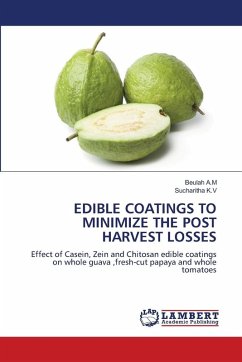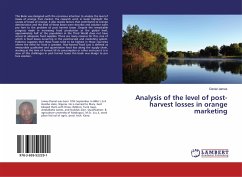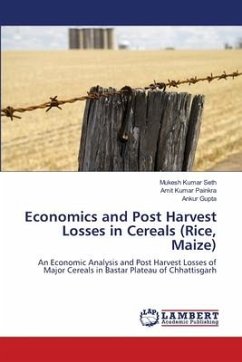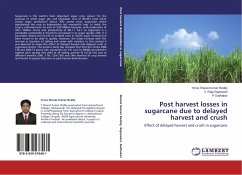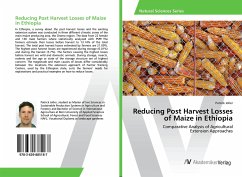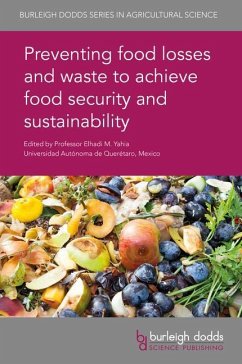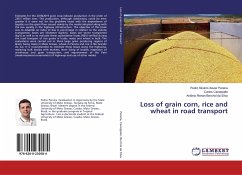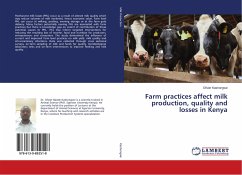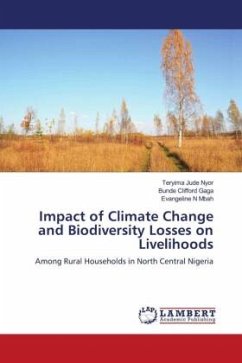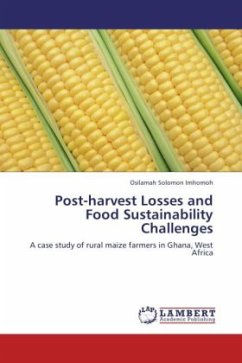
Post-harvest Losses and Food Sustainability Challenges
A case study of rural maize farmers in Ghana, West Africa
Versandkostenfrei!
Versandfertig in 6-10 Tagen
32,99 €
inkl. MwSt.

PAYBACK Punkte
16 °P sammeln!
Post-harvest losses in maize production are of great concern today. Resources such as labour, land, water and fertilizers/chemicals used as production inputs are wasted. An attempt was made to quantify these losses in maize production during storage and its impacts on the livelihoods of rural farmers in some selected regions in Ghana. A visit to some storage sites revealed poor storage facilities, which are prone to factors responsible for maize losses and low level of technical expertise among maize farmers. One of the findings in this study shows that some farmers still rely on saved maize s...
Post-harvest losses in maize production are of great concern today. Resources such as labour, land, water and fertilizers/chemicals used as production inputs are wasted. An attempt was made to quantify these losses in maize production during storage and its impacts on the livelihoods of rural farmers in some selected regions in Ghana. A visit to some storage sites revealed poor storage facilities, which are prone to factors responsible for maize losses and low level of technical expertise among maize farmers. One of the findings in this study shows that some farmers still rely on saved maize seeds from previous harvest as source of planting material. At the later end of the book, some recommendations were made on how to enhance the storability of maize that will in the end; help improve the income and food security situation of the rural maize farmers in the regions under study. This book is written with a view to identify, understand and proffer practical solutions to some of the problems encountered by rural maize farmers. This book is relevant to students interested in post-harvest studies, policy makers and development practitioners in the agricultural sector



